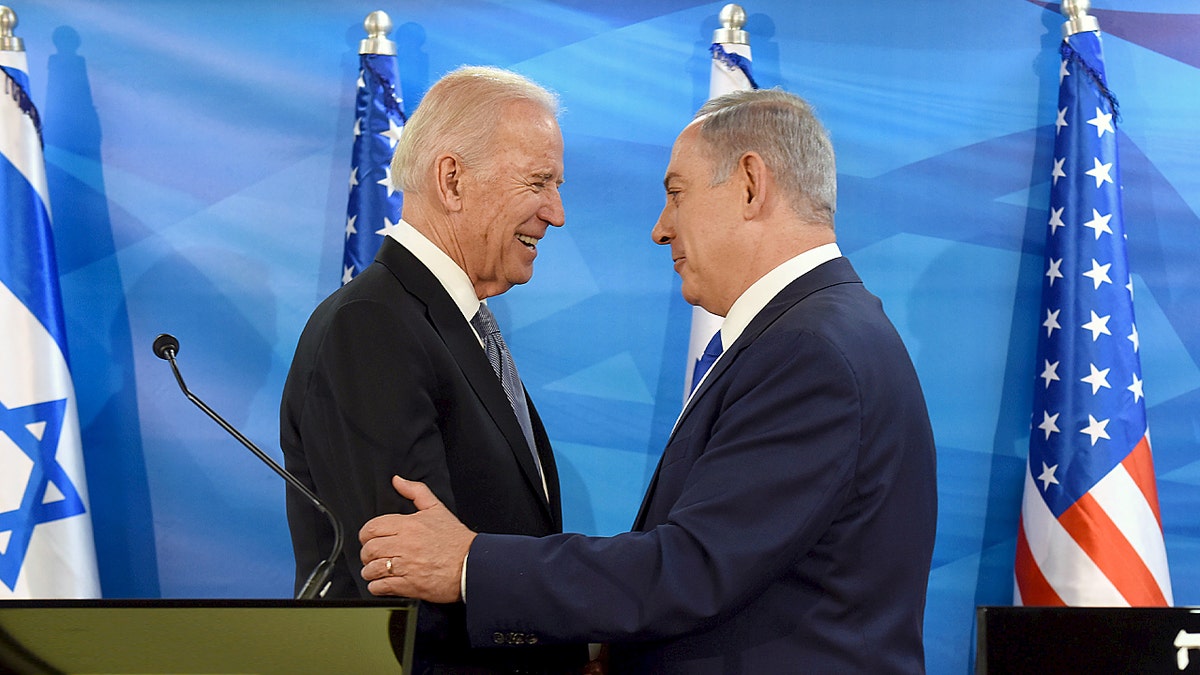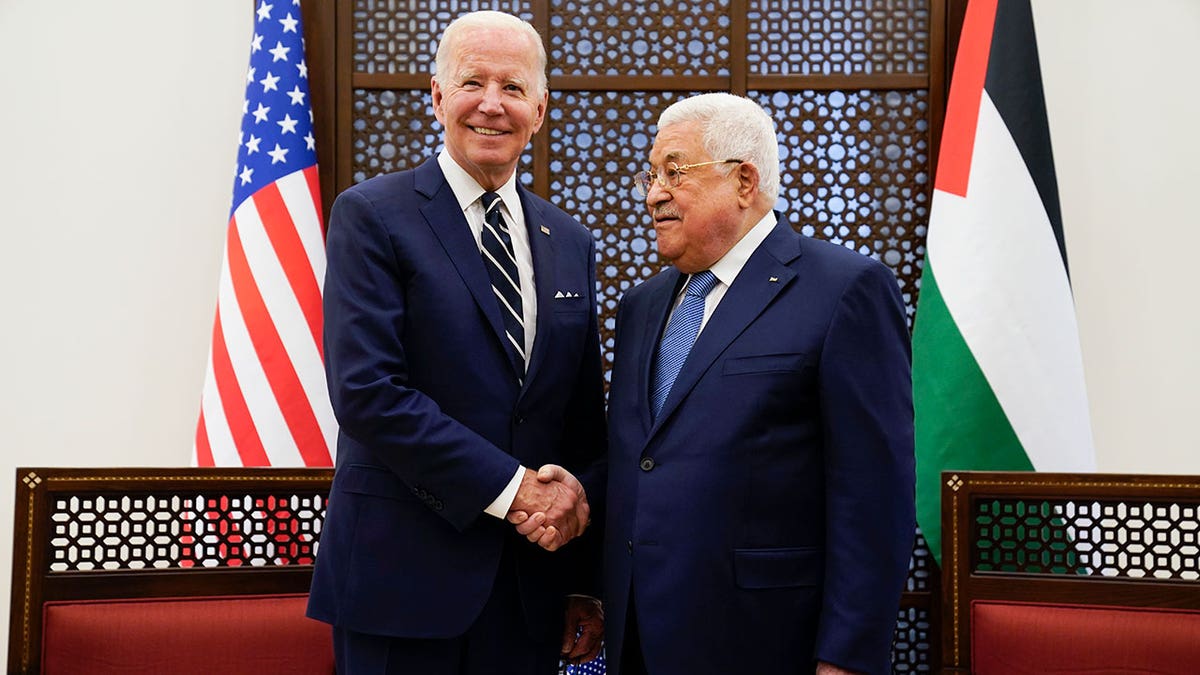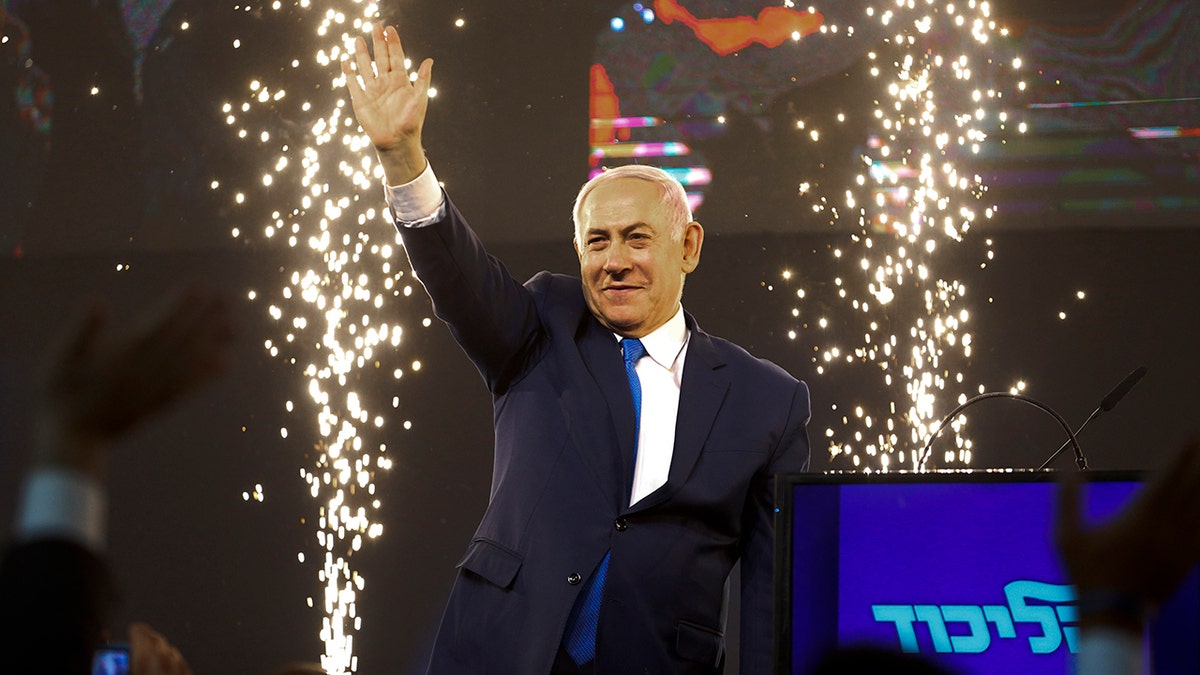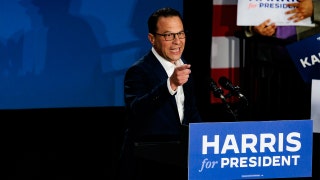Netanyahu analyzes President Biden's true stance on Israel, conflict with Palestinians
Former Israeli Prime Minister Benjamin Netanyahu joins 'Life, Liberty & Levin' to explain why president's views appear 'misdirected.'
Former Israeli Prime Minister Benjamin Netanyahu analyzed President Biden's stance on Israel, calling him sympathetic but perhaps politically misguided in some respects.
Netanyahu acknowledged to "Life, Liberty & Levin" that there are forces within Biden's Democratic Party that are adversarial to Israel.
"I think that Biden is sympathetic to Israel, but I think that his policy on… the Palestinian question and on Iran is also misdirected," Netanyahu said.
He criticized Biden's will to forge a nuclear agreement with Iran based on containment rather than prevention of nuclear weapons development. During the Trump administration, the United States conversely did not view favorably the Obama-era deal forged with Tehran by former Sen. John Kerry, D-Mass.
BIDEN MAKES AMERICA BEGGARS AS OIL SPIKES AMID POTUS ATTMEPT TO DELAY SAUDI ANNOUNCEMENT: RUBIO

Joe Biden and Israeli Prime Minister Benjamin Netanyahu as they deliver joint statements during their meeting in Jerusalem March 9, 2016. REUTERS/Debbie Hill/Pool/File Photo (REUTERS/Debbie Hill)
"I'm trying to be a diplomat here, but I think it's just wrong. It's wrong for America to effectively seek to contain an Iranian nuclear weapon," Netanyahu said. "To say, 'Well, they're going to have them anyway, so let them have it' — no, they have to be stopped."
He noted Iran believes in the destruction of both Israel and likely the United States, adding that it would be foolish to allow the Raisi regime to have the means to carry out such actions or even threaten it.
"That's something that will not advance peace," he said, adding that "reinstating" a credible military threat toward Iran will do more to stop any nuclear arms development than a deal forged by Biden's circle.
SENATE INTEL CHAIRMAN WARNS ELON MUSK NOT TO ‘GET OVER HIS SKIS’ IN FOREIGN AFFAIRS

Palestinian President Mahmoud Abbas and U.S. President Joe Biden shake hands in the West Bank town of Bethlehem. (AP Photo/Evan Vucci) (AP Photo/Evan Vucci)
During a recent United Nations session, Biden laid out his view of the Israeli-Palestinian conflict, saying he seeks "lasting negotiated peace" between the two sides, and that his administration is "committed to Israel's security — full stop."
Biden once more characterized a "two-state solution" as the best outcome of any negotiations.
During his interview with host Mark Levin, himself a former top DOJ official under former President Ronald Reagan, Netanyahu said he has known Biden for decades and that they have always had a cordial but not always politically agreeable relationship.
BERENSON SAYS PFIZER BOARD MEMBER, EX-FDA COMMISSIONER, HAD HIM KICKED OFF TWITTER

Israel's Prime Minister Benjamin Netanyahu waves to his supporters after polls for Israel's general elections closed in Tel Aviv, Israel, Wednesday, April 10, 2019. (AP Photo/Ariel Schalit)
"Biden, who I've known… since he was a young senator in Washington and I came as there as the deputy ambassador, he always says, 'Bibi, I love you, but I don't agree with a word you're saying' — [and] I say to him, ‘Joe, sometimes I reciprocate that.'"
Netanyahu added Biden initially agreed with Israel's forceful response when Hamas was firing rockets into the country, as the Palestinian regime had tactically posted its missile launchers in civilian neighborhoods.
CLICK TO GET THE FOX NEWS APP
"[H]e was supportive throughout of our right to exercise self-defense, but he was under great pressure from a certain wing of the Democratic Party. So he started saying, 'You know, you've got to end it, end it, end it' — and I said, 'No, Joe. I've got to keep on going until we accomplish our objectives.'"
Netanyahu added that after Israel "accomplished our objectives," their force stopped at a point where "American pressure and Israeli action met."
"So we stopped," he said. "We didn't get to the point of confronting it."








































